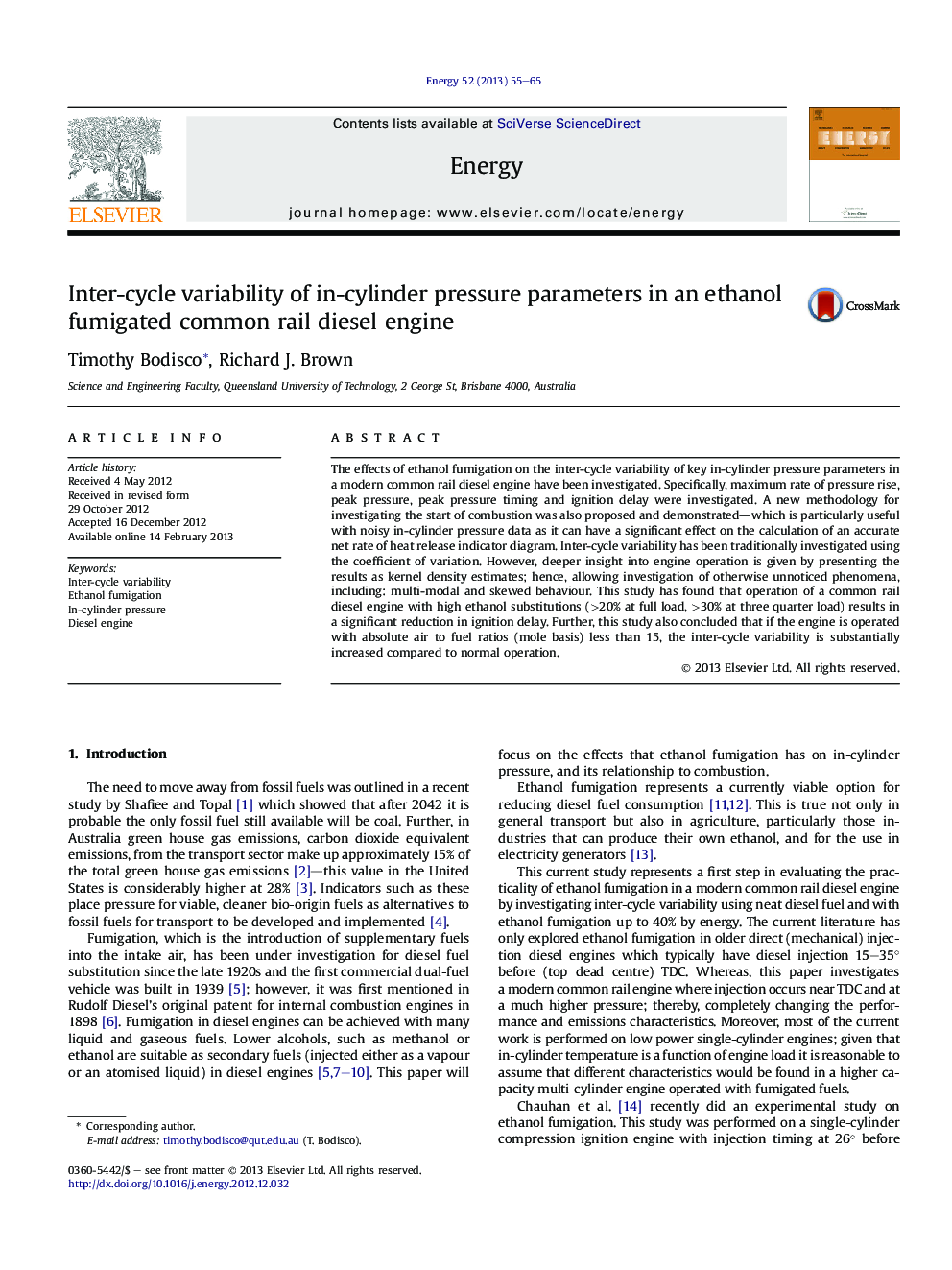| Article ID | Journal | Published Year | Pages | File Type |
|---|---|---|---|---|
| 1732827 | Energy | 2013 | 11 Pages |
The effects of ethanol fumigation on the inter-cycle variability of key in-cylinder pressure parameters in a modern common rail diesel engine have been investigated. Specifically, maximum rate of pressure rise, peak pressure, peak pressure timing and ignition delay were investigated. A new methodology for investigating the start of combustion was also proposed and demonstrated—which is particularly useful with noisy in-cylinder pressure data as it can have a significant effect on the calculation of an accurate net rate of heat release indicator diagram. Inter-cycle variability has been traditionally investigated using the coefficient of variation. However, deeper insight into engine operation is given by presenting the results as kernel density estimates; hence, allowing investigation of otherwise unnoticed phenomena, including: multi-modal and skewed behaviour. This study has found that operation of a common rail diesel engine with high ethanol substitutions (>20% at full load, >30% at three quarter load) results in a significant reduction in ignition delay. Further, this study also concluded that if the engine is operated with absolute air to fuel ratios (mole basis) less than 15, the inter-cycle variability is substantially increased compared to normal operation.
► Experiments involving ethanol in a modern multi-cylinder common-rail diesel engine. ► Proposing the use of combustion resonance to determine the start of combustion. ► Investigation into the inter-cycle variability of key in-cylinder parameters. ► Discussion of these results in relation to the absolute air/fuel ratio. ► Confirmation of the importance of variability studies for alternative fuels research.
